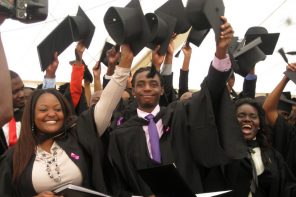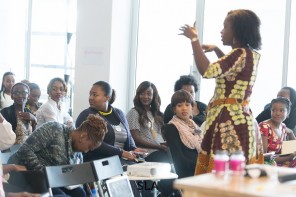When I first heard about the massacre that had taken place in Nigeria last week it took me a while to believe it. I had to see the story on a reputable news network, read as many articles and get as much as information from as many different sources as possible before I could properly comprehend that it had actually taken place. From my personal perspective, it doesn’t make sense. Especially considering the 230 girls that went missing in the Northern State, it was my assumption that the leadership in the country would make sure nothing like that happened ever again. It’s so difficult to make sense of because it was only last year that Nigeria became Africa’s largest economy, and with programs such as the Youth Enterprise with Innovation in Nigeria (YOUWIN) the country shows has so much entrepreneurial potential. From where I’m sitting the opportunities for growth and development in the country, especially for the youth outweigh all the reasons why anyone would join an extremist group like Boko Haram.
As the saga continued it only got worse: the Nigerian government released a statement claiming that it was not a massacre at all, that the witnesses were “exaggerating” what really happened. They further backed up their statement by alleging that their official death count was at 150 – a figure much lower than the witness reports of 2000 dead. What makes it even more difficult to ascertain who is telling the truth is the fact that the area is controlled by Boko Haram and it is too risky for researchers to go in to investigate. It was only on Thursday that the President (who is vying for re-election on Feb 14) visited a military base near where the atrocity took place to give the troops a few words of encouragement for the battle ahead. Ideally in my perfect world his next stop should have been a school or a hospital in the area, but was this the case? Of course not.
I say this because it is important for the government to combat the terrorist movement in the country with non-violent means as well. Killing Boko Haram insurgents will only create more insurgents and the problem will only multiply itself. People turn to terrorism because they lack a better alternative. The terrorist group that they belong to becomes their family and their government; it provides for them and it protects them so in return they fight for it and defend it against all enemies. The price of oil has plummeted around the world; this is bad for Nigeria as it means their economy has been hit hard. Claiming that there is no link between the two is naïve. The poorer the country gets, the less the government can provide for their citizens and the more people will turn to terrorism. The government needs to actively focus on social development programs to fight these terrorists. By educating the population they are empowering them to be able to turn down a Boko Haram recruiter, this is the only viable long-term solution to this complicated problem.
A well-known Nigerian proverb that has always resonated with me states: “In the moment of crisis, the wise build bridges and the foolish build dams.” Let us come together with our Nigerian brothers and mourn those that have passed on, while at the same time endlessly searching for a way out of this tragic situation.





